The following is a speech I delivered at the Shabbat Across North America dinner at Beth Emeth Bais Yehuda Synagogue in Toronto, on the evening of March 1, 2024
On September 19, 2022, I was privileged to be in London when the world said goodbye to Queen Elizabeth II. Within hours of her death 11 days earlier, I had booked a flight to England for her funeral, really just guessing what date it would be held. Thankfully, I got it right, and I spent just 25 hours in London, mourning a giant of history, along with what seemed like the rest of the world.
For several hours that morning, I stood amongst probably millions of others, silent, waiting to pay our last respects. As the Queen’s funeral cortege came past - her coffin, draped with her royal standard, her family members marching somberly behind her - the crowd clapped. I heard shouts of God Save the Queen and God Save the King. The King was, of course, walking right past in front of us.
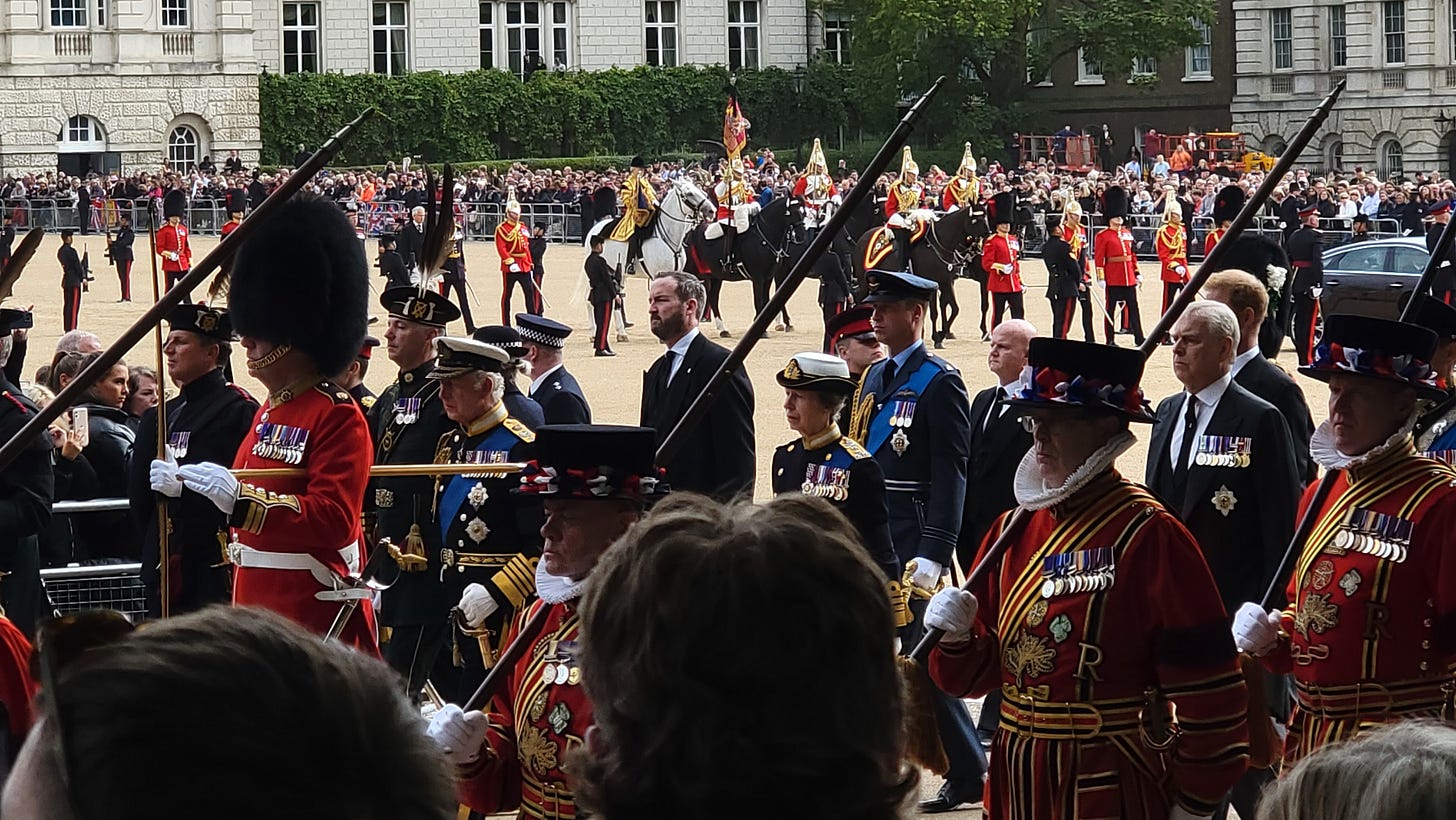
I have admired the Queen for many years, for many reasons. I think one of them is the historian in me that has always been fascinated by the life of someone who has bridged so much of human history. For example, in 1951, during her first tour of Canada, she met Benjamin Mansell of Nova Scotia, who had served in Afghanistan during the 1870s - likely making her the only person to have met someone who fought in the Anglo-Afghan War of 1878 and the 21st century Afghan War against the Taliban - wars that took place 130 years apart.
Thrown into her role at the age of just 26, she was never really supposed to be Queen, especially not at such a young age. But she was forced immediately to take on the role of head of the British Empire, mourn her father whom she adored, and take lessons in statecraft from none other than Winston Churchill. It could not have been easy.
But, she discharged her role gracefully. She weathered storms - whether from the world at large or within her own family - and she emerged as the global matriarch. A little old woman, handbag on wrist, dogs at side, won over the hearts and minds of several generations, and seemingly, the entire world.
This is why, in the aftermath of her death, there was one word that continued to grace the headlines, obituaries, books, and articles written about her: duty.
Famously, on her 21st birthday in April 1947, she said, “I declare before you all that my whole life whether it be long or short shall be devoted to your service and the service of our great imperial family to which we all belong.”
She swore that she would abide by her duty, and she kept that promise for the next 75 years.
The parsha - Ki Tisa
Tonight, I want to speak about duty.
It is an appropriate night to talk about duty, because the parsha this week is Ki Tisa, which translates to “when you take”.
The parsha is set at the base of Mount Sinai, describing how the people of Israel were required to each contribute half a shekel of silver to the mishkan - the divine sanctuary - being built in the desert. It speaks about the sin of the Golden Calf, Moses destroying the first set of Ten Commandments when he sees the calf and people dancing around it, his begging God to forgive the trespasses of his people, and Moses receiving a second set of commandments.
The obvious lessons in duty are of course the 10 Commandments, a moral code which has formed the basis of western civilization for 3,000 years. But aside from the obvious, there are other obligations and duties set out in the parsha: the need for the community to participate in the building of the mishkan, joint responsibility for the actions of your people, and the need to ask forgiveness on their behalf.
This week’s parsha is replete with examples of obligations toward both God and each other, and of the duties that we owe to our people.
What is described in this week’s portion are duties presented to the people of Israel at this most important turning point in Jewish history: the receiving of the Torah.
Today’s turning point
I would argue however that today, we find ourselves at yet another important turning point in Jewish history.
On October 7, 2023, we in the Diaspora woke up to a changed world - a completely altered reality. We awoke to news of a modern-day pogrom, when the most number of Jews were killed in one day since the Holocaust.
That day created a new generation of survivors - those who looked antisemitic evil in the eye - and those who will now be forced to carry the survivor-torch forward, just like their parents and grandparents who survived the Holocaust were forced to do. They too must vow never again, even though it seemingly keeps happening again and again.
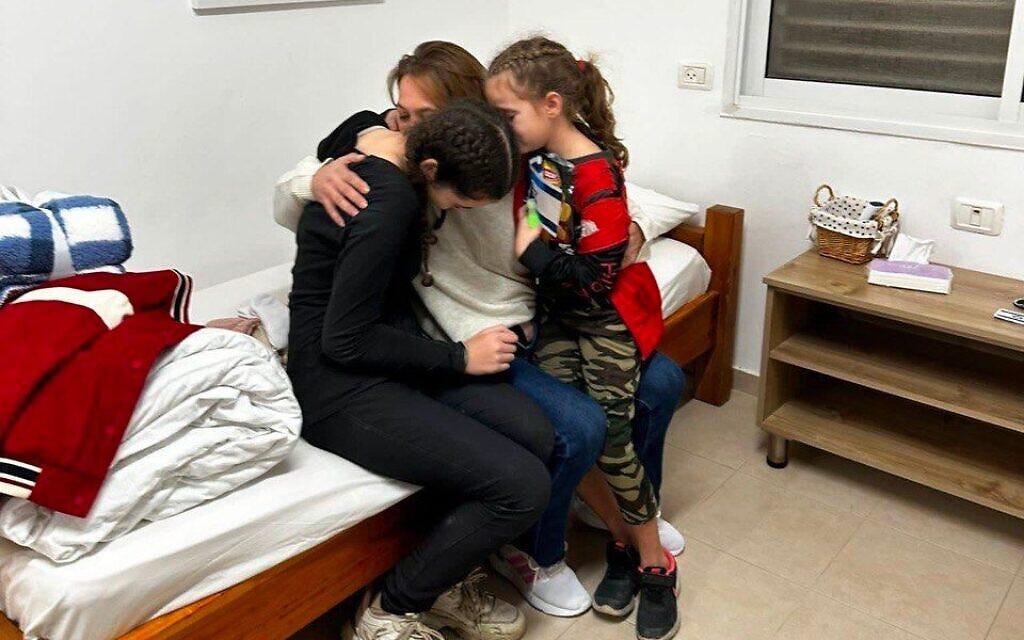
In the early hours of October 7, we gradually learned about what happened - of babies, soldiers, men, and women, and the elderly, even Holocaust survivors, kidnapped and taken hostage into Gaza. Today, after 146 days, there may still be as many as 100 hostages still alive, held in dark terror dungeons.
Families were killed. Children were made orphans. The most horrific crimes that could possibly be perpetrated by human beings against other human beings were committed by Palestinian terrorists and civilians. It shocked our collective conscience.
For the rest of Israel, those not living in the Gaza Envelope, they had their conception of Israel’s invincibility shattered in just a few short hours. Their leaders promised to keep them safe, but failed. Would another front in the war open up? In the North? The West Bank? The streets of Tel Aviv?
In the Diaspora, we learned with whom we live. On October 7 and 8, we witnessed neighbours, friends, colleagues, strangers, take to the streets to celebrate the murder of Jews. As I wrote in the Toronto Star that week, they were celebrating murder, kidnapping, rape, and beheadings - all in the name of some twisted interpretation of the Arab-Israeli conflict and bastardized definitions of words like genocide, ethnic cleansing, occupation, and apartheid.
I recall saying to my wife as we were getting ready for bed on October 8, that I had never felt that sad in my entire life. And honestly, that feeling has still not subsided. I felt vulnerable, hated, and shocked that people today could publicly express such hateful sentiment against me, my family, my children, my parents, with seemingly no concern with being labelled antisemites. That this was now just OK. This is the new normal. It is OK to hate Jews, whether masked behind just hating Israel or not.
In the last several months, we have learned a lot. I have a book sitting next to my bed that I open to read every now and then entitled, “Can the Whole World Be Wrong?” by Richard Landes. It asks whether the whole world can be wrong about essentially everything having to do with the Jews.
Can the whole world be wrong about antisemitism? About the occupation? About Israel’s motive to settle an ancient homeland and create a safe space for Jewish people? About Israel’s motives in uprooting Hamas tunnels? About Israel’s serious efforts to avoid Palestinian casualties in Gaza? About Hamas using innocent Palestinians as human shields? About UNRWA cooperating with a terror group, and participating in their terror infrastructure? About antisemitic conspiracy theories?
Can the whole world be wrong about all of this?
We know the answer: Yes!
Something I’ve started to say more and more frequently over the last months - sometimes aloud and sometimes muttered under my breath - is that the world does not deserve the Jews and Israel. If we are to be treated this way, then why share our knowledge, our brains, our books and equations and inventions? Why should Israel share its medical technology or cell phone apps or anything that is used every day by so many in the world to make their lives easier, when the inventors and brains behind it all are treated this way?
At times, I think that Israel should just become a bit more like Wakanda - the insular African nation in the Marvel Universe (where the Black Panther comes from), that is more technologically advanced than any other country in the world, but who does not share their means with the world. They are strong and silent. They defend themselves when need be, but they keep their heads low, and live their lives.
But that’s not who we are. We cannot detach from the world. We have always felt a duty to our surroundings and each other, and it is that duty that needs some clarification today - an understanding of what we can do, what we can offer, and how we must perceive the world if we are to be a part of it, even if everyone else is wrong. Even if they don’t want us there.
The duties we owe
Rabbi Lord Jonathan Sacks once said that
Rights are things we claim. Duties are things we perform. Duties, in other words, are rights translated from the passive to the active mode.
So, as I look at my three children sitting here today, thinking about not only how we hope to raise them in the present, but what sort of a Jewish world they will inhabit in the future, I wonder, at this turning point in Jewish history, what duties do we have today?
Just like the seven-branched menorah mentioned in this week’s parsha, I can think of seven duties:
1 - A Duty to our Judaism
I recall once attending a lecture by Rabbi Sacks in Toronto. At one point, he said something like, “Judaism is the least scary religion to everyone except the Jews.” By that he meant that many Jews are scared of Judaism because it is a prescriptive religion, with many rules, customs, and rituals that - for the less informed - are difficult to navigate. No one else fears Judaism, but there are Jews who have not yet learned how to be comfortable within it.
There are however many different ways to practice one’s Judaism. Whatever your approach is, the only thing I can say is that there are some absolutes, without which you no longer have Judaism, or the Judaism that this world needs, and deserves.
The writer Cynthia Ozick once wrote that, “If we blow into the narrow end of the shofar, we will be heard far. But, if we choose to be Mankind, rather than Jewish, and blow into the wider part, we will not be heard at all.”
What she means is that there is a particularism to Judaism that does require our abiding by certain rules and red lines. If we are particular, and we do not stray from what makes us Jewish, then we will be heard around the world - people will know who we are, and what legacy we come from. However, if we strive to make Judaism a universal religion - striving for broader messages from every single Jewish ideal or holiday - then our voices will not be heard at all. What makes Judaism unique, special, and indeed able to survive all these years, will be lost.
We thus have a duty to our Judaism. To kindle the flame and pass it on.
2 - A Duty to Each Other
Peoplehood is one of the most important attributes of our community. At the start of this week’s parsha, God commands Moses to count the people of Israel, and they are each called on to give a half-shekel to be counted. God says, “וְלֹא־יִֽהְיֶ֥ה בָהֶ֛ם נֶ֖גֶף בִּפְקֹ֥ד אֹתָֽם” - there will be no plague among them when they are counted.
Today, the Jewish population of the world stands at approximately 15 million. In Canada, we have approximately 330,000 Jews spread out primarily among the MTV cities: Montreal, Toronto, and Vancouver. It is projected that in about 20 years, we will have the third largest Jewish population in the world, overtaking the Jewish population of France.
Our community is diverse, made up of Ashkenazi, Sephardi and Mizrahi Jews. We range from ultra Orthodox to extremely secular, from extremely affluent, to those living in terrible poverty. We are both left and right wing, conservative and liberal, and I would say evenly split on the age-old debate of what goes on a latke: applesauce or sour cream.
But, we are Jews. We have a duty to one another, and we cannot let minor differences separate us, or pull our community apart. We are frankly too small, and we cannot afford these rifts. We have an important duty to each other. To treat each other with love and respect, and to not allow minor differences in opinion to come between us. At the end of the day, all we have ever been able to rely on, is each other.
3 - A Duty to Israel
On May 14, 1948, one of the biggest miracles in Jewish history occurred: our sovereign Jewish State was re-established. Not only was the re-establishment of our sovereignty in the Land of Israel after 2,000 years miraculous - but even more so, considering that just three short years earlier, we emerged from the darkest time in Jewish history, with the end of the Holocaust, when ⅓ of the population of the world’s Jews were decimated by fire and bullets.
In almost 76 years, Israel has grown to become a remarkable country. Facing wars, efforts at delegitimization, less than friendly neighbours, disgraceful treatment on the world stage, and efforts - time and time again - to discredit its actions, Israel has flourished. With a population of almost 10 million, Israel is a start-up nation in every sense. In technology, entertainment, fashion, fine dining, humanitarian aid, and agriculture, Israel leads the way forward, and punches well above its weight.
In the meantime, it has to fight to defend itself from countries like Iran, Venezuela, North Korea, Syria, Yemen, and Lebanon. From terror groups like Hamas, Hezbollah, Al Qaeda, and ISIS. From multinational groups like the UN and UNRWA, from student groups on campus, and yes, from misguided Jews themselves like Jewish Voices for Peace, Independent Jewish Voices, and If Not Now. These entities seek the dismantling of the world’s only Jewish State, and they must be opposed.
For all of Jewish history, from the moment when God told Abraham to lech lecha - go forth - to the land he promised him and his children, Israel has been central to our existence. Yes, we learned to live in exile for 2,000 years, but in our lifetimes we have witnessed the establishment, development, and flourishing of our Jewish State. The place towards which we pray, and that we hope to celebrate our next year’s passover seder in, is in our hands, and we have a duty to safeguard and keep strong the State of Israel.
4 - A Duty to History
When Herzl’s First Zionist Congress was convened in Basel, Switzerland, in August 1897, not everyone was on board with Zionism. There was a loud group of critics who claimed that by creating a Jewish State, the Zionists would potentially be destroying the certain something that had kept the Jews alive, as Jews, for almost 2,000 years in exile.
But that’s not what Herzl and the early Zionists sought to do. They sought to take that certain something, and use it to re-establish a sovereign state. That certain something, whatever it was, is what enabled us to defeat our enemies - that indeed rose in each generation. It enabled us to outlast empires, and not just outlast, but thrive. It gave us world-class minds, the ability to create, invent, and thrive, and become the diverse people, religion, culture, and heritage, that we have today.
We have a duty towards this history - to remember where we come from, not only to ensure that those bad things that once happened do not happen again, but to remember the strength that we brought to each generation’s challenges, and to ensure we demonstrate that strength - that certain something - again and again. We have a duty to that history.
5 - A Duty to Stay Informed
Not only do we have a duty to our history, or to our past, but we have a duty to our present. We must stay informed if we are going to effectively combat the misinformation and lies being perpetrated by antisemites and those anti-Israel advocates today.
We live in the information age when everything moves quickly. There is no doubt that it is difficult to hold down a day job and stay up to date with everything that is happening in the world, but being oblivious or ignorant of current events is not a luxury we as Jews can afford. We have a duty to stay up to date and informed about the condition of our brothers and sisters in Israel, about the challenges we face as Jews in Canada, and about what the world is saying about us today. We can only effectively respond when we are adequately informed.
6 - A Duty to the Truth
Staying informed goes hand in hand with having a duty to the truth. Make no mistake: one of the reasons we must stay informed about the truth, is because our enemies are so good at lying. They lie effectively, and often. They lie about our motives, our actions, our history, and who we are. Of course, they do so because it is easier to lie than to tell the truth, but we have 2,000 years of practice at combating lies about who we are, and why we do what we do.
I wish to be clear: when it comes to right versus wrong, light versus dark, and the truth versus lies, we are on the right side. We are right, we are virtuous, and we stand for the truth. We have no need to make up stories or reinterpret history. We have the truth on our side, and even though it sometimes seems like telling the truth may be a losing battle, and that it may be easier to stretch facts, exaggerate, or even lie, our narrative can only be consistent, and our fight can only remain virtuous if we stick to the truth.
We stand on the right side of history, even though it may sometimes seem like the entire world is against us. But guess what? When it comes to the Jews, the entire world is wrong. This is nothing new, but it is something we must always remind ourselves when our newsfeeds are overwhelmingly against us, the media distorts the facts, and academia manipulates our motives. We must adhere to our duty to the truth.
7 - A Duty to Rebel
Finally, yes, we have a duty to rebel. Judaism is a religion of rebellion. From the moment Abraham shouted back at God for killing all the people of Sodom even if righteous people dwelled there - חָלִ֨לָה לְּךָ֜ מֵעֲשֹׂ֣ת ׀ כַּדָּבָ֣ר הַזֶּ֗ה לְהָמִ֤ית צַדִּיק֙ עִם־רָשָׁ֔ע - Far be it from You to do such a thing, to bring death upon the innocent as well as the guilty - since then we have been a religion of rebellion.
We have a duty to ask questions, to push back, to take nothing for granted. Not asking questions, not pushing back, taking things for granted, implies that we are satisfied, and we as Jews are never satisfied. There is always more we can and should do. This rebellion should only be for productive purposes, but there is a lot we can do.
If our community institutions are not doing what they need to do, challenge them to do better - this may involve meeting with those in charge, but can also include joining boards and committees to have your voice heard. If you are unhappy with what you are reading in the media, write to the editors, pen your own articles, or start your own publication. Start or sign petitions calling for change. Do so with your own name, and don’t do anything anonymously. Be difficult, stand your ground, own your position, and do so unapologetically. We have a duty to rebel, but only with a purpose in mind. We come from a long line of nudniks, and push back is what our people need.
I thus submit to you tonight that we have these seven duties: A duty to our Judaism, to Israel, to our people, to history, to stay informed, to the truth, and to rebel. These are not presented in any particular order of importance, and there are certainly more. But I believe these can guide our actions and priorities over the coming weeks, months, and years, as we learn to navigate this new normal.
Where to begin?
In November, I wrote an article called Thanks Hamas. On October 6, 2023, we were a fractured people in many respects. In Israel, there was talk of a civil war as the divisions regarding the proposed judicial overhaul threatened to completely overturn Israeli civil society. In the Diaspora, many Jews were divided along the same lines as those set out in Israel. Otherwise, there was in some respects a distancing of Jews from traditional Jewish life, from each other, and taking a step back from Jewish traditions.
On October 7, Hamas changed all of that. Israel is united, with a common mission and goal, to an unprecedented degree. The unity there gives us strength here. Further, there is increased Jewish engagement in the Diaspora, by any and all measures. Alongside the increase in antisemitism, we have seen an increase in overt Zionism, and Jewish pride. Though the sacrifices endured on Oct 7 were tragic, our actions since have proven that they were not sacrifices made in vain.
The second century teacher Rabbi Shimon Ben Azzai once noted that the reward of doing one duty, is the power to do another.
Tonight, as we mark this Shabbat Across North America with hundreds of other congregations, let’s draw strength from our community, pride in our collective actions, and remember that we have a duty to our legacy, to our people, to Israel, and to our children’s future.
Am Yisrael Chai




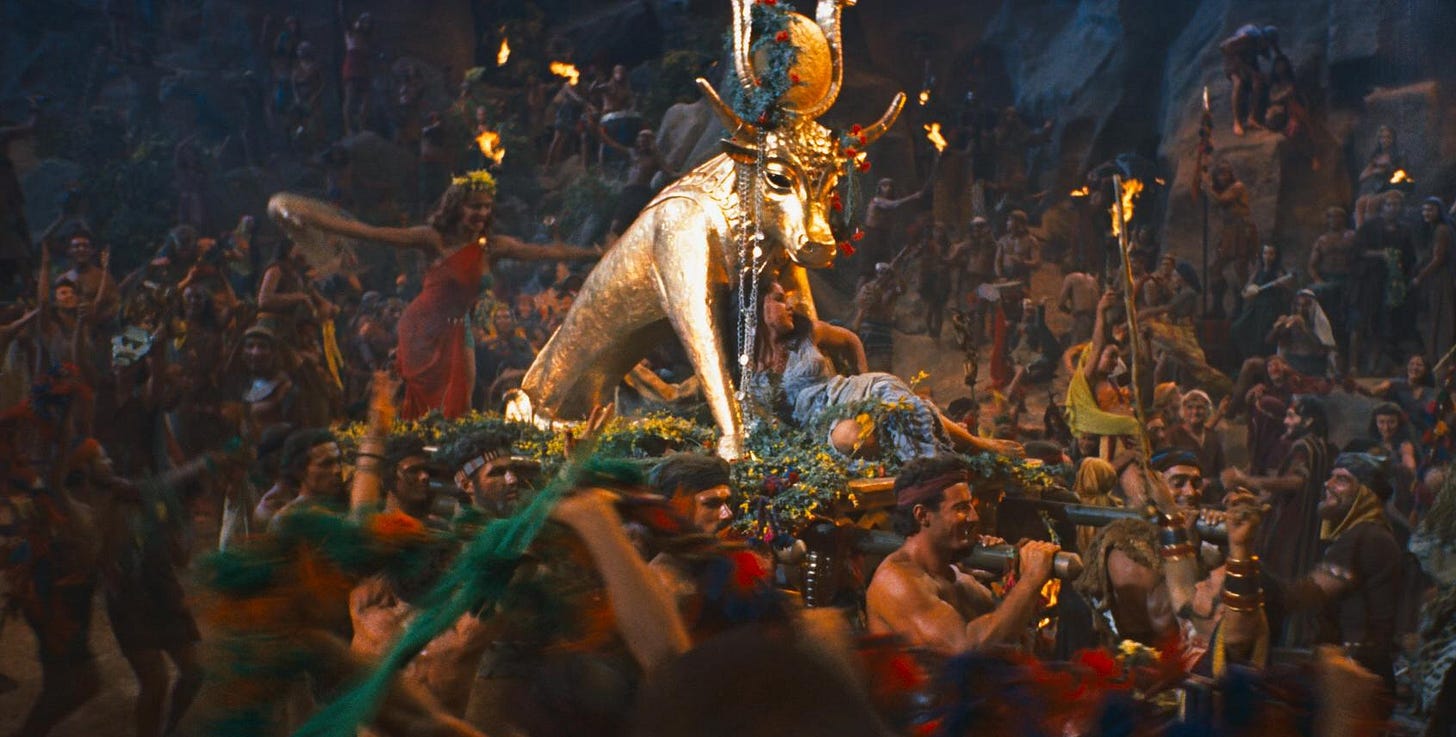
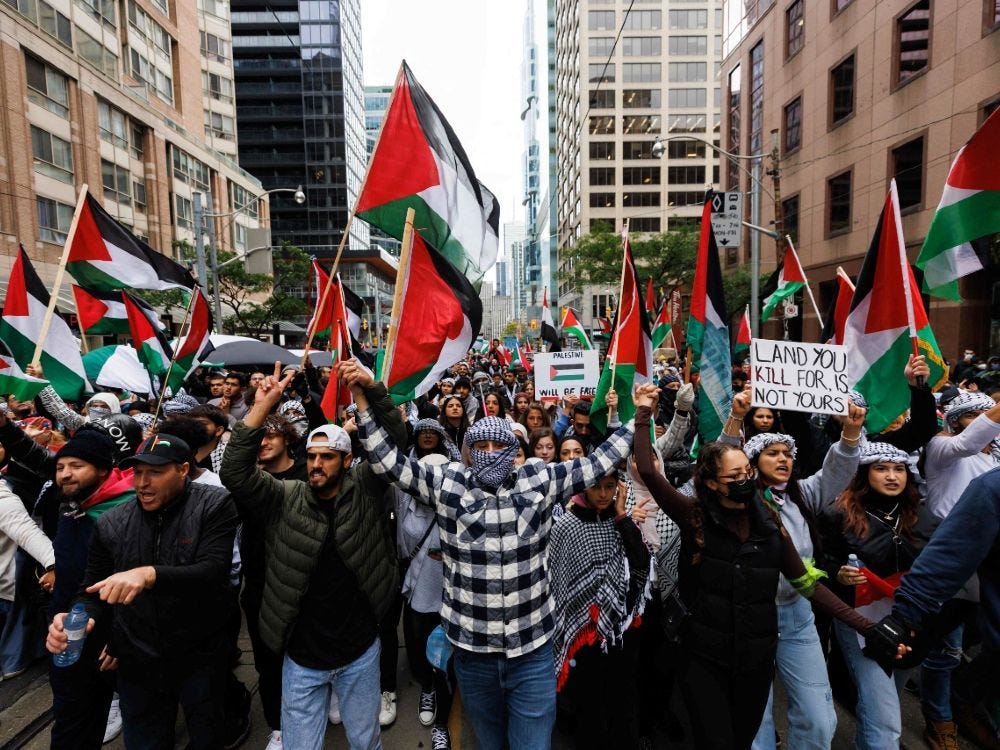
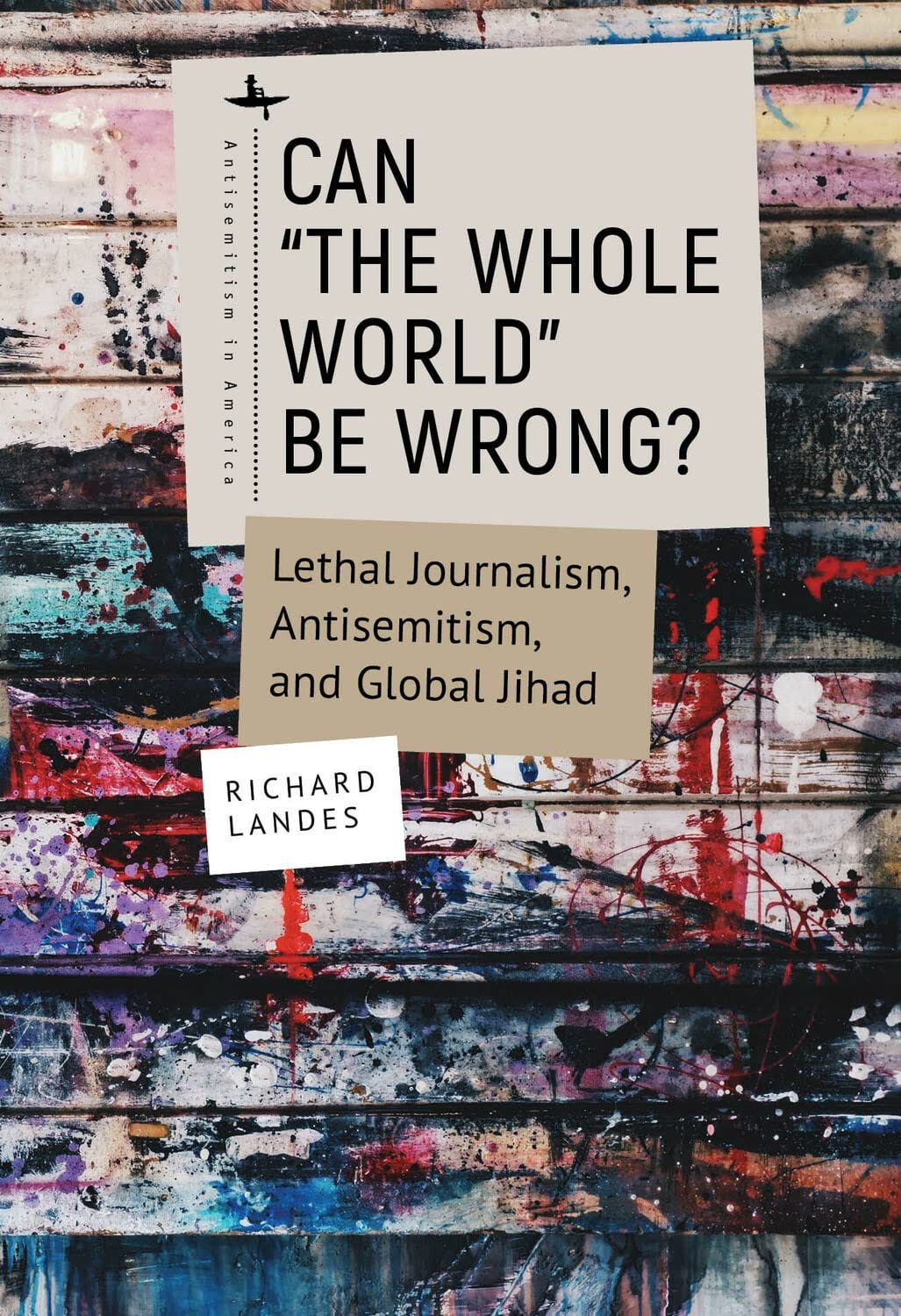

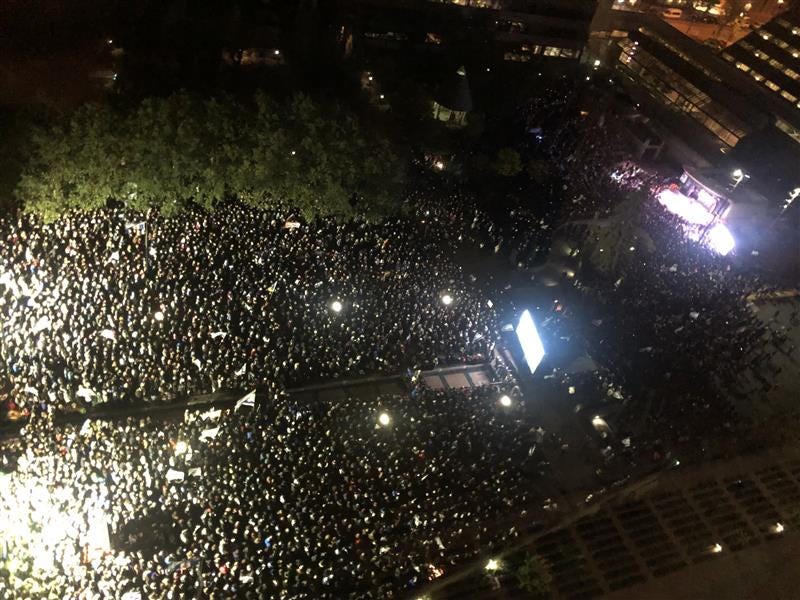
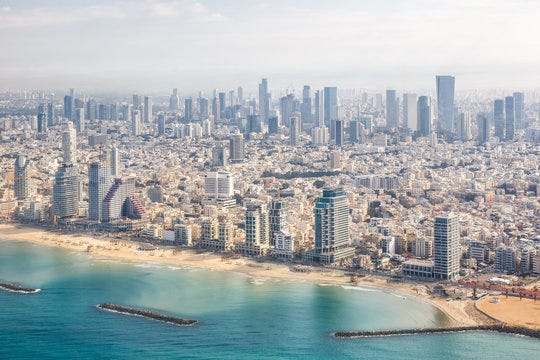
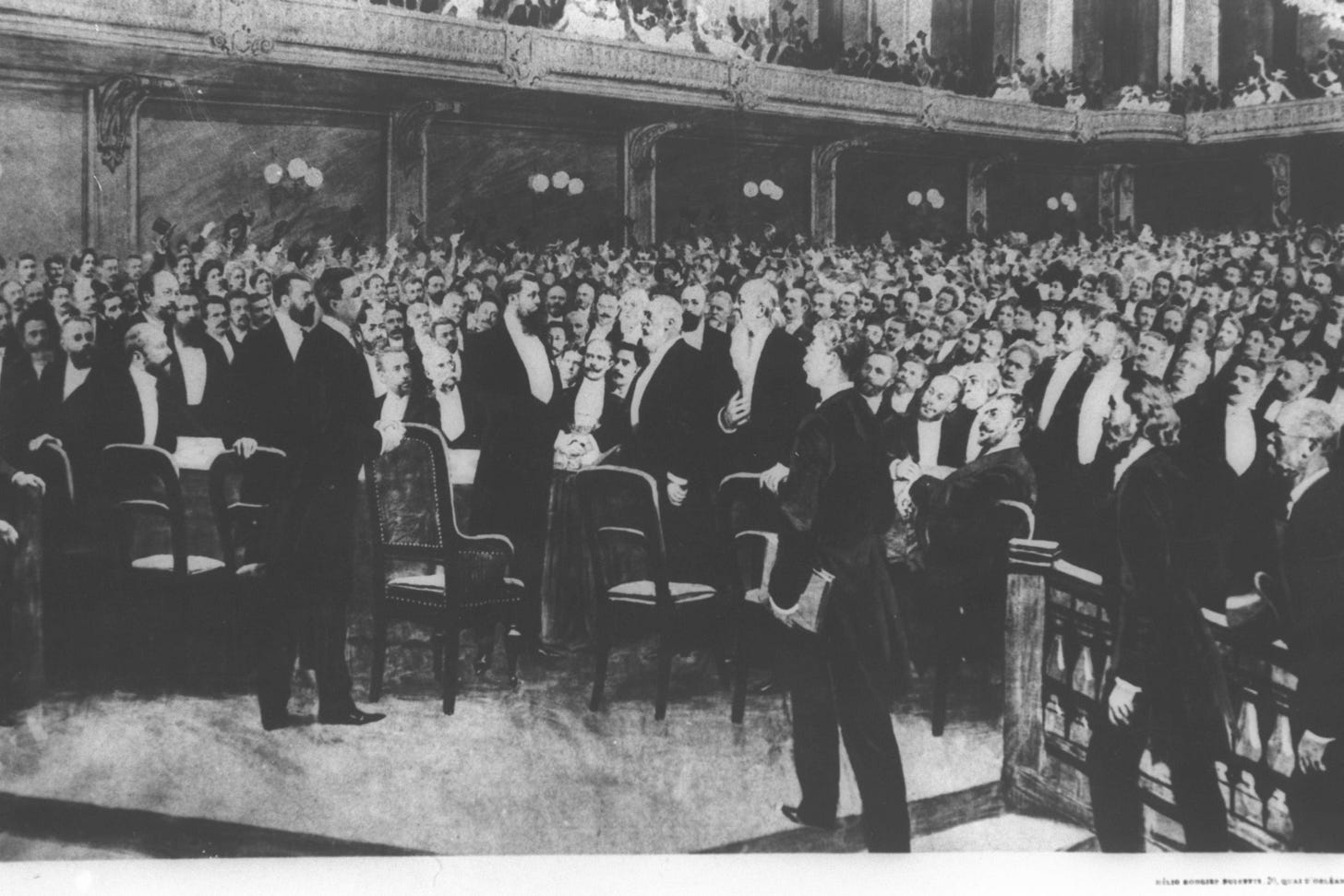

I really enjoyed this piece. It inspired me.